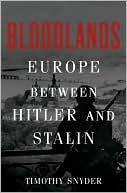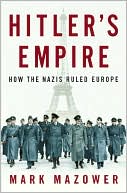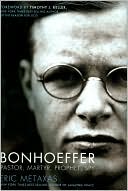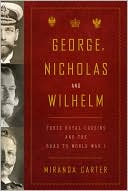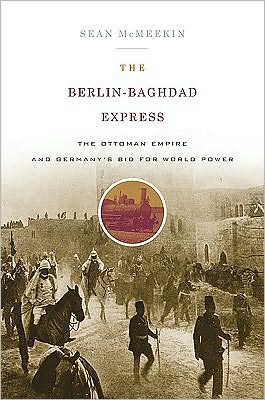Berlin at War
Berlin was the city at the very center of World War Two. It was the launching pad for Hitler’s empire, the embodiment of his vision of a “world metropolis.” Berlin was also the place where Hitler’s Reich would ultimately fall. Berlin suffered more air raids than any other German city and endured the full force of a Soviet siege.\ In Berlin at War, historian Roger Moorhouse uses diaries, memoirs, and interviews to provide a searing first-hand account of life and death in the Nazi capital—the...
Search in google:
From the corridors of power to the daily experiences of Berliners, a magnificent portrait of everyday life at the epicenter of the Third Reich The Washington Post - Jonathan Yardley Moorhouse…tells the story of Berlin's war thoroughly and fairly…[in] this excellent book.
\ Publishers WeeklyBritish historian Moorhouse (Killing Hitler) puts a human face on the capital city of a Reich at war. In the summer of 1939, Berliners were optimistic and grateful to their führer for Germany’s improving economy and political order--above all, the country was at peace. That was to change with the declaration of war on September 1. Efforts to maintain some sense of normality were overshadowed by the benchmarks of total war: blackouts, rationing, and beginning in 1940 the air raids that would leave Berlin in ruins. Foreign forced laborers poured in to work in military factories, as Jews boarded trains, headed for annihilation. A network of informers aided a ubiquitous Gestapo with “a veritable epidemic of denunciations” as “civic relations” in the city collapsed. At war’s end Berlin became the Reich’s final battleground as the Red Army paid back four years of atrocities with an orgy of looting and rape. Yet Berliners sustained a chip-on-the–shoulder independence. Despite Berliners’ “soul-searching and recriminations” (barely touched on here), Moorhouse drily relates the irony that, after the devastation, the hope that had dominated prewar Berlin quickly regained the upper hand. 16 pages of b&w photos; 1 map. (Oct.)\ \ \ \ \ Kirkus ReviewsA superb addition to the social history of Nazi Germany.\ British historian Moorhouse (Killing Hitler: The Plots, The Assassins, and the Dictator Who Cheated Death, 2006, etc.) begins with a vivid description of Berlin in April 1939, as the city celebrated Hitler's 50th birthday, a massive, elaborately choreographed festivity featuring a five-hour military parade during which Hitler mostly remained standing. The author then jumps ahead to Germany's invasion of Poland, an announcement greeted with no enthusiasm whatsoever from Berliners who remembered the terrible privations of 1914–'18. Using interviews, letters, journals, memoirs and archives, the author provides an absorbing account of daily life, as Berliners were less concerned about the Reich's glories than the fate of their men at the front and preoccupied by shortages of fuel, food and clothes. Bombing raids began in 1940, producing little damage but serious morale problems as working Berliners complained bitterly of sleepless nights in bomb shelters. They paid little attention to nearly 500,000 foreign laborers who worked under conditions varying from tolerable to those of concentration-camp inmates (who also worked in the city). A few showed concern for the Jews, but readers will squirm as Moorhouse recounts how they were harassed, starved, robbed, ejected from their apartments and finally marched off to be killed. Other disturbing chapters recount the story of Berlin's anti-Nazi opposition (generally disastrous), the trials of Jews who tried to escape deportation by going underground (some succeeded) and the increasing deterioration of city life after 1943 as bombing intensified.\ An august contribution to the city-during-a-war genre, worthy to sit alongside such classics as Margaret Leech's Reveille in Washington (1941) and Ernest Furgurson's Ashes of Glory (1996).\ \ \ \ Jonathan YardleyMoorhouse…tells the story of Berlin's war thoroughly and fairly…[in] this excellent book. \ —The Washington Post\ \

